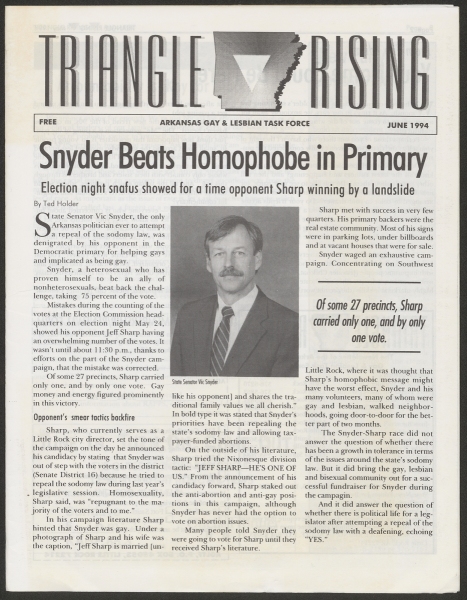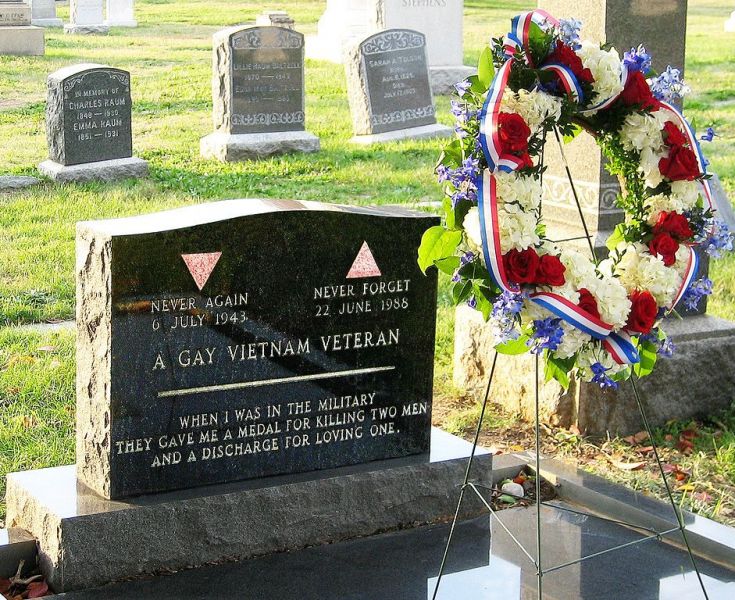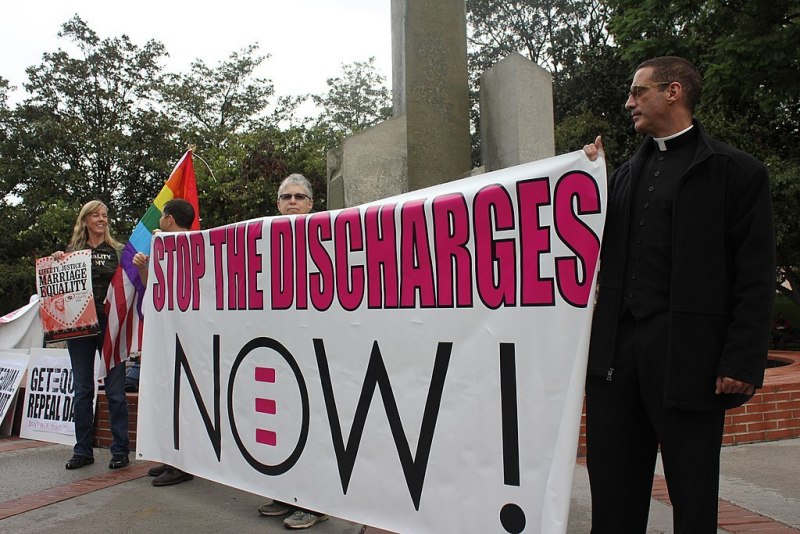Discussions about homosexuality in American society were a key feature of the so-called culture wars of the 1990s. Vic Snyder worked to reform and oppose policies that were seen as harmful to the LGBTQ+ community. This work led him to collaborate with a variety of diverse stakeholders, from local and national gay rights activists to religious organizations. He attempted to amend the state sodomy law in Arkansas several times. In Congress, he voted against a proposed Federal Marriage Amendment and worked to repeal the U.S. military’s “Don’t Ask Don’t Tell” policy. His positions on these issues frequently put him at odds with many other Arkansas politicians.
THE 1977 ARKANSAS
Sodomy Law
The regulation of sodomy, a term that has historically referenced an array of sexual acts, has a long and complex history in the United States. In the late 20th century, Arkansas was the first state in the South to repeal its sodomy law following a criminal code reform in 1975. This policy change was short-lived. Following pressure from various religious groups and a campaign inspired by activist Anita Bryant, the Arkansas General Assembly enacted a new sodomy law in 1977. However, this time it was tailored to specifically criminalize consensual same-sex sexual activity as a misdemeanor. At the time, Arkansas became one of only five states with a sodomy statute that singled out homosexuality.
Sodomy Law
A law that defines certain sexual acts as crimes
During the AIDS epidemic in the early 1990s, Senator Snyder attempted to reform the Arkansas sodomy statute several times. He argued that the law was detrimental to public health efforts as it discouraged and effectively penalized disclosing one’s sexuality as part of routine HIV testing. He also saw the policy as a violation of privacy. While Senator Snyder was ultimately unsuccessful in his efforts to reform the Arkansas sodomy statutes, all such state laws were rendered unconstitutional by the U.S. Supreme Court in Lawrence v. Texas (2003).
DON'T ASK
Don't Tell
Same-sex sexual activity had long been a punishable offense and grounds for dismissal within American military institutions. A series of high-profile events in the 1970s and 1980s brought new attention to the role of LGBTQ+ service members, perhaps most notably the honorable discharge and subsequent activism of Leonard Matlovich, a technical sergeant in the U.S. Air Force. In the run up to the 1992 presidential election, Democratic candidates made ending the ban on LGBTQ+ service members a part of their platform. This proved easier said than done. In 1993, President Bill Clinton’s Department of Defense enacted the compromise policy known as “Don’t Ask Don’t Tell” (DADT). DADT was intended to allow LGBTQ+ persons to serve in the military so long as they did not discuss their identity in public. In practice, many LGBTQ+ individuals continued to be discharged or passed over for promotions.
As a member of the Committee on Armed Services, Congressman Snyder routinely criticized those who believed that LGBTQ+ service members negatively impacted morale and posed a threat of HIV transmission. In 2010, during his final months in office, Congressman Snyder voted to repeal DADT. The policy officially ended in 2011.
State Senator and Congressman Snyder’s work in support of advancing LGBTQ+ rights spanned the duration of his political career. Some of these efforts met with mixed success initially, especially his attempts to reform the sodomy laws in Arkansas. His support of LGBTQ+ rights in each of these matters was ultimately met with success as all these policies were eventually overturned, blocked, or repealed.
For More Information:
Blomeley, Seth. “Snyder Answers on Gay Issues.” Arkansas Democrat-Gazette, September 11, 2004.
Blomeley, Seth. “Debate Turns Heated for Snyder, Mayberry – Jabs Traded on Gay Marriage, Abortion.” Arkansas Democrat-Gazette, October 25, 2006.
Eskridge, William Jr. Dishonorable Passions: Sodomy Laws in America, 1861-2003. New York: Viking, 2008.
O’Neal, Rachel. “Senate Committee Rejects Bill to Abolish Sodomy Law for Third Time.” Arkansas Democrat-Gazette, February 25, 1995.
Thompson, Brock. “A Crime Unfit to Be Named: Arkansas and Sodomy.” The Arkansas Historical Quarterly 61, no. 3 (Autumn 2002): 255-271. https://www.jstor.org/stable/40028028.
U.S. Government Printing Office. Don’t Ask Don’t Tell Review: Hearing Before the Military Personnel Subcommittee of the Committee on Armed Services House of Representatives, One Hundred Tenth Congress, 2nd Edition. Washington, 2009.
Victor F. Snyder Congressional papers, UALR.MS.0180, UA Little Rock Center for Arkansas History and Culture, Little Rock, AR.
About the Author:
Dr. David Baylis has a Ph.D. in Geography from Michigan State University where he was a Fulbright Hays Fellow who conducted research on gendered sanitation and hygiene policy in the early Turkish Republic. He previously taught at Delta State University before joining the History Department at UA Little Rock in 2018. His research interests in historical geography include environmental history and the history of gender and sexuality. He also teaches courses in spatial storytelling and map design.




